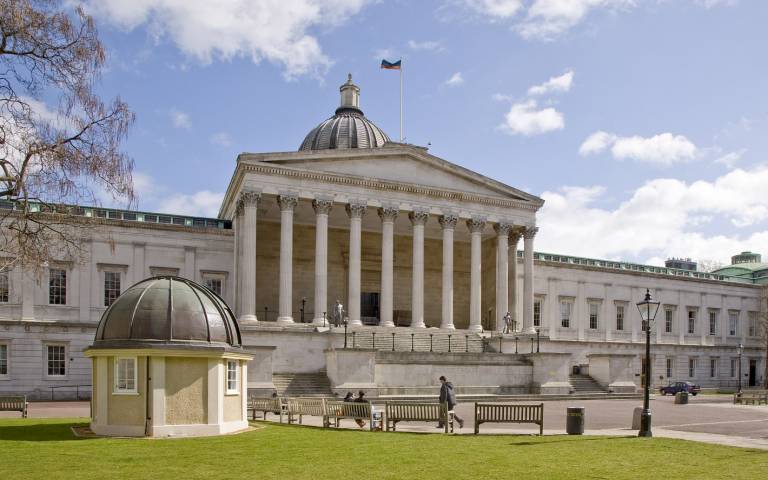UCL is second in the world for ‘most talked about’ research
17 December 2019
UCL has been ranked second in the world for scientific research which has generated the most public attention and discussion, according to the Altmetric Top 100 released today.

The university has six papers listed in the Top 100, which tracked over 2.7 million research outputs in 2019. UCL is the top ranked institution in the UK and has been exceed only by Harvard in the global list.
Altmetric highlights 62.5 million mentions of published research across a range of online platforms – from patents and public policy documents to mainstream media, blogs, Wikipedia, and social media platforms (including Twitter, Reddit & Facebook).
This year’s list features works published in 43 different journals, preprint servers, and government websites.
The most talked about study from UCL, led by Professor Alison Rodger (UCL Institute for Global Health and Royal Free London NHS Foundation Trust), reported that antiretroviral treatment prevents sexual transmission of HIV, which is a major advancement in the fight against the spread of HIV worldwide.
Other top papers involving UCL researchers include:
- #33 – ‘Water vapour in the atmosphere of the habitable-zone eight-Earth-mass planet K2-18 b' by Dr Angelos Tsiaras, Dr Ingo Waldmann, Professor Giovanna Tinetti, Professor Jonathan Tennyson, Dr Sergey Yurchenko (UCL Centre for Space Exochemistry Data and UCL Physics & Astronomy).
- #46 – ‘Earth system impacts of the European arrival and Great Dying in the Americas after 1492' by Alexander Koch, Dr Chris Brierley, Professor Mark Maslin, Professor Simon Lewis (UCL Geography).
- #82 – ‘Association of lifestyle and genetic risk with incidence of dementia’ by Dr Elina Hyppönen (UCL GOS Institute of Child Health).
- #91 – ‘Dose-response associations between accelerometry measured physical activity and sedentary time and all cause mortality: systematic review and harmonised meta-analysis’ by Dr Barbara Jefferis (UCL Institute of Epidemiology & Health).
- #94 – ‘Microdeletion in a FAAH pseudogene identified in a patient with high anandamide concentrations and pain insensitivity ' by Dr James Cox, Dr Abdella Habib, Dr Andrei Okorokov, Man-Cheung Lee, Shengnan Li, Samuel Gossage (UCL Medicine) and Dr Jose Bras (UCL Queen Square Institute of Neurology).
Links
- UCL News story: First water detected on potentially ‘habitable’ planet
- UCL News story: ‘Great Dying’ in Americas disturbed Earth’s climate
- UCL News story: Woman with novel gene mutation lives almost pain-free
- UCL Institute for Global Health
- UCL Centre for Space Exochemistry Data
- UCL Physics & Astronomy
- UCL Geography
- UCL Great Ormond Street Institute of Child Health
- UCL Epidemiology & Health
- UCL Medicine
- UCL Queen Square Institute of Neurology
 Close
Close

